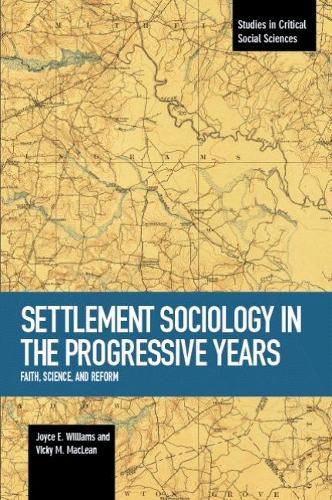Readings Newsletter
Become a Readings Member to make your shopping experience even easier.
Sign in or sign up for free!
You’re not far away from qualifying for FREE standard shipping within Australia
You’ve qualified for FREE standard shipping within Australia
The cart is loading…






Settlement Sociology in the Progressive Years unearths a lost history and paradigm which has been only recently acknowledged for its role in shaping the American sociological tradition. Williams and MacLean trace the key works of early scholar activists through the leading settlement houses in Chicago, New York and Boston. The roots of sociology as a public enterprise for social reform are restored to the canon through early research, teaching, and social advocacy. This settlement paradigm of neighborly relations combined the visions of social gospelers and first-wave feminists, and advocated for an active engagement in the struggles for social change unfolding in the neighborhoods being settled -an approach sure to resonate with today’s pubic sociologists. The authors demonstrate that the movement to settle in neighborhoods and become active in the struggle for social change during a period of rapid industrialization, immigration, and urbanization was key to this paradigm.
$9.00 standard shipping within Australia
FREE standard shipping within Australia for orders over $100.00
Express & International shipping calculated at checkout
Settlement Sociology in the Progressive Years unearths a lost history and paradigm which has been only recently acknowledged for its role in shaping the American sociological tradition. Williams and MacLean trace the key works of early scholar activists through the leading settlement houses in Chicago, New York and Boston. The roots of sociology as a public enterprise for social reform are restored to the canon through early research, teaching, and social advocacy. This settlement paradigm of neighborly relations combined the visions of social gospelers and first-wave feminists, and advocated for an active engagement in the struggles for social change unfolding in the neighborhoods being settled -an approach sure to resonate with today’s pubic sociologists. The authors demonstrate that the movement to settle in neighborhoods and become active in the struggle for social change during a period of rapid industrialization, immigration, and urbanization was key to this paradigm.